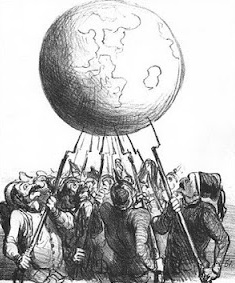
Balance of power (international relations)
The balance of power theory in international relations suggests that states may secure their survival by preventing any one state from gaining enough military power to dominate all others.[1] If one state becomes much stronger, the theory predicts it will take advantage of its weaker neighbors, thereby driving them to unite in a defensive coalition. Some realists maintain that a balance-of-power system is more stable than one with a dominant state, as aggression is unprofitable when there is equilibrium of power between rival coalitions.[1]
When threatened, states may seek safety either by balancing, allying with others against the prevailing threat; or bandwagoning, aligning themselves with the threatening power.[2] Other alliance tactics include buck-passing and chain-ganging. Realists have long debated how the polarity of a system impacts the choice of tactics;[3] however, it is generally agreed that in bipolar systems, each great power has no choice but to directly confront the other.[4] Along with debates between realists about the prevalence of balancing in alliance patterns, other schools of international relations, such as constructivists, are also critical of the balance of power theory, disputing core realist assumptions regarding the international system and the behavior of states.[5]
In history: